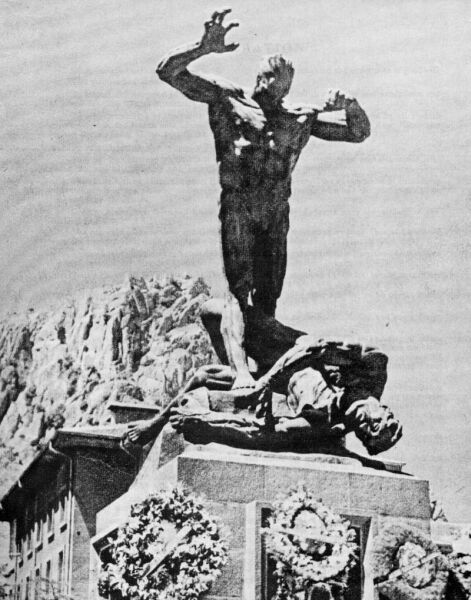For those dear Dominicans and friends who attended the Pro-life march sponsored by Idaho Right to Life, thanks for being there. There were 500 people present, we had a fine MC, a good speaker that challenged us, and more time for fellowship.
As some have said, the March for Life is a bittersweet moment, in the sense that we come together for the March in common prayer and fellowship from all faiths, but we have to do so as a result of the issue of our day--the commission of abortions--is a crime that history knows no precedence.
The speaker was the youth minister at St. Paul's Catholic Church in Nampa, Idaho, a wonderful town just west of Boise, Idaho. He is 30 something, dressed a little informal, but well-prepared. Boy, did he challenge all of us, especially the evangelical and Catholic worlds that gathered about the podium.
Don't get me wrong, I didn't agree with him entirely myself, but it proved to me again and hopefully to the big guy of our Diocese, our dear Bishop Micheal, that we should be turning out great preachers, not great social justice promoters.
If we ignite the hearts and minds of all Catholic people, and by example all Christian and Jewish people, then we can change the face of Idaho for all people including the unborn, the homeless, the hungry, the disabled, and all.
Once ignited in the Holy Spirit, like our dear St. Dominic could do, people will respond by acts, not just words.
I pray that my message not get lost here. Peter Espil, youth minister and speaker, challenged many people that day with what he called a seamless pro-life message. I loved his challenge for regardless of whether you may agree with him, the bottom line was about the dignity of all human persons.
Our government was founded on the principle that all human persons have dignity, that this principle is grounded in who we are as people, and that the Declaration of Independence and the U.S. Constitution recognized this principle (and did not establish that principle).
Boy, back to the story, Pete's message was heard by Catholic, Christian, Protestant, Evangelical, and Jew alike. From all these traditions, many were offended. Deeply offended. Some wrote him off, others recognized some of the truth of it, others agree, and still others saw the political side of his message and resisted the remainder.
His message had some politics in it for sure. A discerning mind could not help but here that, but it did take discernment to at least listen and learn.
I prayed that I would listen and learn. I don't agree with him entirely. For instance, I don't agree that more government spending for poverty is necessarily equivalent to the moral problem of poverty. I believe that people must be called to end poverty by Christian action, by right order of lives, finances, property, assets, and resources, and following the Gospel. By, giving. I believe it will require great preachers, trained in good theology (not politics) to change the way people think.
I believe Pete's speech will result in dialog, discourse, and will help get the message out. The problem with many in the social justice committees and crowds is that they mix social justice with 'socialism justice' believing government is the solution. This approach has utterly failed across the world.
The solution is with all of us. I challenge you to review Pete's speech. The link is below.
What follows is a response to Dennis Mansfield's note on his blog, dismissing Idaho Right to Life's annual March for Life as a "march of the dead." Of course, Dennis' commentary was, frankly, dismissive, but he got it all wrong. You can read his entry at http://www.dennismansfield.com/.
Not impressive at all. The problem is, however, is that you cannot dismiss his view entirely, because he reflects many of the Protestant tradition (even though Dennis was raised a Catholic). I count him as a friend as I have known him for almost 18 years. I have worked with him. I believe he is a man of good will.
Below is the post that I put on Dennis' web. I hope it makes sense.
This is a long discourse here, but an important one, for being pro-life is more than a march, more than being on the right or left, and more than being against the commission of abortions, it is indeed about the dignity of all human life.
Please review the following entry on the Mansfield blog:
Dennis:
My friend. Your commentary regarding the March for Life was overly snarky. It wasn’t like you! Above all, however, your interpretation was wrong. Sorry, Dennis, but it was flat wrong!
Full disclosure. I am a member of the board for Right to Life. Fuller disclosure. I have met, but do not know Peter Espil. More disclosure. I carefully reviewed Pete’s speech on Adams blog here:
http://www.adamsweb.us/blog/index.php/a/2007/01/ , and here
http://recordings.talkshoe.com/TS-7413.mp3
Dennis, I think you could be a source of instruction, shepherding, and discourse, not discord. Your blog is nice, but you got it wrong. It was not a march of death.
Yes, it may seem a negative, and it gets that way sometimes. No one declared death. The message was life! The march declared life.
The march of the dead? Lighten up!
Peter Espil challenged our thinking, but he didn’t carry the message of death!
You need to re-think this approach, and as you stand in the vanguard with so many other people, you can challenge other’s thinking as well.
I think you were trying to be positive by referencing the march for BSU. Yet, wouldn’t it have been better to see both as one and the same, that life—all life—begins in the womb, and the young men who rallied on that football field just a few weeks ago were living and breathing because their mothers’ choice was life and not death.
Pete says he is a seamless pro-life Catholic. I believe he is in earnest about his views but in some ways, he was wrong. He talked about the dignity of all human persons. Was that so wrong?
He definitely comes from a different point of view—especially as compared to the typical evangelical point of view. Yet, was he so wrong?
Yes and no. From his talk, it commences a discussion out of respect for differing views. I listened to his speech again, and recognized the over-reaching theme of his talk was the dignity of all human persons. Is that so wrong? I don’t entirely agree with him; and I am a seamless pro-life Christian—a seamless pro-life Catholic.
I don’t agree with him about spending more government money to solve problems. Government is a part of the problem—it is not the solution like so many people believe. That is simply bad economics. Discourse, not discord.
I believe the Church needs to teach that materialism and over-consumption is wrong, that abortion is wrong, that adultery is a sin full of death, that immorality whether sexual or stealing (or whatever) in any form, is wrong. (We need good preachers, not good politicians!). All of these things rob us of our ability to help the poor. Many in the Christian church teach more government money for this or that, as if all problems will be resolved. I didn’t agree with him about more government money, but did he make you think?
Discourse, not discord or dismissal of the message.
He challenged us to support free medical clinics by raising funds each summer. He challenged us to re-look at the option of war. While I agree we must protect ourselves, was the Iraqi war right? After four years, I don’t know. Was it so wrong to make you think?
He spoke of the death penalty. If in time, a condemned man repented and the mercy of God visited his heart and soul, and gave it all to Jesus, would it be so bad that he lived life in prison, instead of ending it by state-sanction?
Discourse, not discord or dismissal.
The same for immigrants. I want illegal aliens to obey the law. It is essential that foreign governments re-align their governments and economies to recognize political and economic freedom. Only then, will this onslaught of immigrants, refugees, and the like end. But, as a beacon of hope here in America, shouldn’t we treat our fellow human beings with dignity? Is that so difficult? That is all Pete was asking that we uphold the dignity of all human persons.
His message was about human dignity. We may approach it differently, but his message is pro-life. Your dismissal of Peter Espil’s message was short-sided—and may I say, so unlike you!
After all, he needs help. He is pro-life. He is a Democrat. That combination is so sparse in Canyon County, that when they have their state convention, they fill up the southern-most booth at the Little Kitchen restaurant in downtown Nampa!
Finally, Idaho Right to Life is quite alive and the dear old emperor has the robes on. If you disagree with something, engage in discourse, be resourceful and hopeful. The message is clear, life is good, life is worth living, there is hope, and BSU wins!
Your friend,
John Keenan






 B.A. (Liberal Arts), Thomas Aquinas College, Santa Paula, California; S.T.M. and S.T.L., International Theological Institute, Gaming, Austria; Ph.L. and Ph.D., Pontificia Università della Santa Croce, Rome; S.T.D. candidate, Universität Freiburg, Switzerland
B.A. (Liberal Arts), Thomas Aquinas College, Santa Paula, California; S.T.M. and S.T.L., International Theological Institute, Gaming, Austria; Ph.L. and Ph.D., Pontificia Università della Santa Croce, Rome; S.T.D. candidate, Universität Freiburg, Switzerland


























